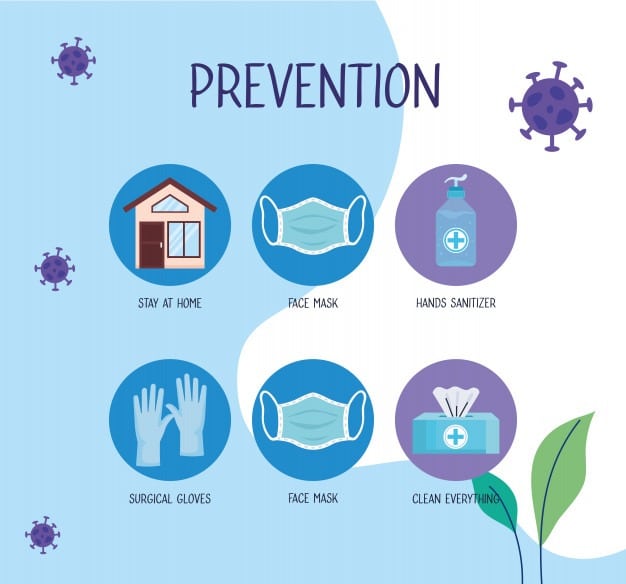
COVID-19 is a respiratory illness caused by a novel coronavirus. The symptoms can range from common cold to more severe problems. It was first reported in December 2019 in Wuhan City in China. The normal symptoms include fever, coughing, sore throat and shortness of breath (in severe cases). The virus can spread from person to person, but maintaining good hygiene can prevent the spread.
How it spreads
The virus can easily spread from person to person through
- close contact with an infectious person (including in the 48 hours before they had symptoms)
- an infected person’s cough or sneeze
- touching objects or surfaces that have droplets from an infected person, and then touching your mouth or face
There is no existing immunity for the novel coronavirus. This means that it can spread widely and quickly.
Symptoms
Symptoms can range from mild illness to pneumonia. While some people may recover faster, others may fall severely ill. People with coronavirus may experience symptoms such as:
- fever
- respiratory symptoms
- coughing
- sore throat
- shortness of breath
Other symptoms may include runny nose, headache, muscle or joint pains, nausea, diarrhoea, vomiting, loss of sense of smell, altered sense of taste, loss of appetite and fatigue.
To stop the spread of COVID-19 people with even mild symptoms of respiratory infection are encouraged to get tested.
Who is most at risk
The people who are at higher risk are:
- travellers who have recently travelled overseas
- those who have been in close contact with an infected person
- people in correctional and detention facilities
People who are, or are more likely to be, at higher risk of serious illness are:
- people 65 years and older with chronic medical conditions
- elderly 70 years and older
- people with weak immune systems
At this stage children and babies are equally at higher risk of contracting the disease, but there has so far been no confirmed COVID-19 cases among children. Also, there is limited evidence at this time regarding the risk in pregnant women.
Get yourself tested
If you are sick and think that you have COVID-19 symptoms, seek immediate medical attention.
Tell the doctor about your symptoms, any travel history or any recent contact with someone who’s COVID-19 positive.
You will have to take precautions when you take your treatment. Follow doctor’s instructions carefully. Wear a mask at all times to protect others. Stay away from other people and cover your coughs and sneezes with your elbow.
Testing is even more important if you any of the following apply to you:
- you have returned from overseas in the past 14 days
- you have been in close contact with a COVID-19 positive patient in the past 14 days
- you are a health care, aged care or residential care professional with direct patient contact
- you have lived in or travelled through a red zone area where there is a higher number of COVID-19 cases.
If your tests indicate serious symptoms, you’ll have to be treated in isolation to prevent the virus spread. If your doctor says you are well enough to go home, it is advised to isolate yourself at home and protect yourself and others
Treating COVID-19
There is no particular treatment for novel coronavirus and no antibiotics work on this kind of virus. But the symptoms are curable by isolation
Some reports suggest certain drugs like hydroxychloroquine can be used to cure COVID-19.

